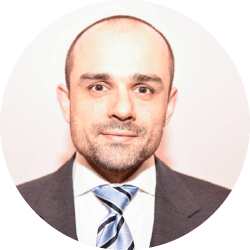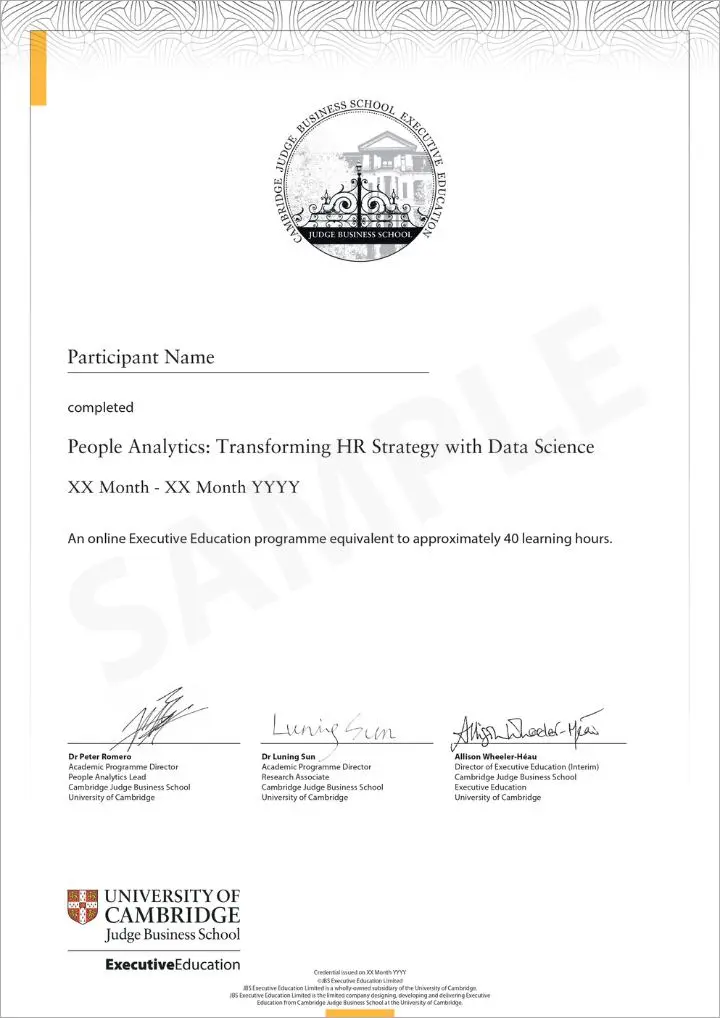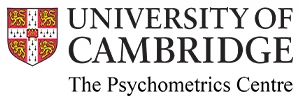People Analytics: Transforming HR Strategy with Data Science
Why enrol for the People Analytics: Transforming HR Strategy with Data Science programme?
Today’s human resource leaders and people managers are being called upon to make decisions that enhance both people and business outcomes. Most HR leaders do not have access to employee data as well as the analytical tools that help to derive insights, and optimise and align decisions with strategic corporate objectives. This programme will enable you to develop a cutting-edge people analytics function in your organisation. It will also equip you with practical and analytical techniques, and data-driven insights that will guide you to future-proof your business.
Who is this programme for?
The programme is focused on helping HR leaders leverage people analytics to achieve positive change across individual, organisational and societal levels, and chart a vision for the future. The programme is ideal for:
Mid-level to senior HR professionals from any industry looking to set up or restructure the people analytics function to leverage data and solve problems.You will understand the opportunities and risks of big data and machine learning in HR and quantify and predict the impact of people on business outcomes.
People/data analytics professionals seeking to expand strategic knowledge of people analytics and integrate untapped data sources to make business-relevant predictions. You will discover analytical techniques to evaluate a range of internal factors, such as managerial bench strength, high turnover, skills shortages, appraisal frameworks and more.
Consultants - HR and Analytics who need the technical skills to provide more innovative and impactful solutions to their clients. You will understand where people data resides within an organisation and learn to leverage these resources effectively.
Project managers who need to optimise and better align their teams and initiatives with corporate strategy. You will broaden your perspective on the many psychological and behavioural factors that determine the success or failure of strategic projects.
Directors and functional heads looking to use people analytics to transform their workplace and make better staffing decisions.
Employee representatives who want to acquire a more sophisticated understanding of how big data and artificial intelligence are transforming many aspects of the workplace.
Learnings from this programme are applicable across most major industries, including financial services, utilities, real estate, telecom, consulting and other professional services, government as well as labour unions and other professional bodies.
Programme curriculum
Throughout this eight-week online programme, you will learn practical approaches to set up your people analytics team and leverage data that already exists within your organisation, to solve strategic challenges at the workplace.
For more information on the syllabus, download the brochure.
Testimonials
Faculty

Research Director, BSc (Zhejiang University), MSc (University of Munich), PhD (University of Cambridge)
Luning Sun is a highly experienced psychometrician and researcher, having led many international research collaborations to advance the field of psychological and behavioural ...

People Analytics Lead, The Psychometrics Centre
Peter Romero has 20 years of experience working at marquee organisations such as Gartner and SHL, of which he spent six years in Research & Development and 14 years in consult...

Certificate
Upon successful completion of the programme, participants will be awarded a digital certificate of completion by Cambridge Judge Business School Executive Education.
Please note that this programme can be incorporated into the completion of the Cambridge General Management Certificate of Achievement (GMCA). It will be credited as an "in-person" two-day programme for the purpose of meeting the GMCA requirements. If you require more details on the GMCA and wish to speak to our advisers, please contact executive.education@jbs.cam.ac.uk.
Note: After successful completion of the online programme, your verified digital certificate will be emailed to you in the name you used when registering for the programme. All certificate images are for illustrative purposes only and may be subject to change at the discretion of Cambridge Judge Business School Executive Education.
FAQs
Didn't find what you were looking for? Write to us at learner.success@emeritus.org or Schedule a call with one of our Programme Advisers or call us at +44 203 479 4043 (UK) / +1 315 819 0707(US) / +65 3163 8580 (SG)
Early registrations are encouraged. Seats fill up quickly!
Flexible payment options available.
Starts On







